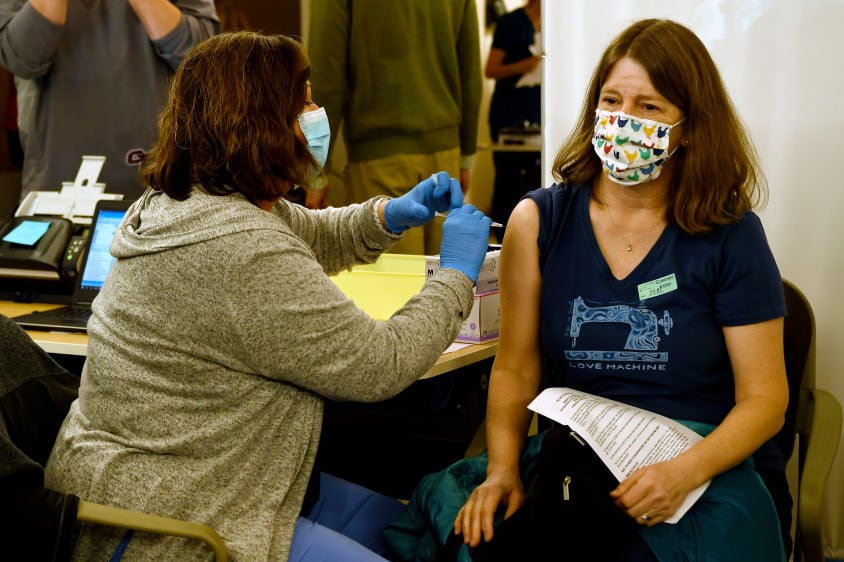Indiana teachers, school staff, and childcare providers will be eligible for vaccines at any clinic in the state beginning Monday.
At the direction of the White House, the state will allow educators and school staff to get vaccinated at all of the state’s roughly 400 vaccination sites, according to state officials. For the past week, educators were eligible for vaccines, but only at pharmacies partnering with the federal government for vaccines.
Those who will be eligible for vaccines now include teachers, Head Start and Early Start staff, child care providers, classroom aides, bus drivers, janitors, counselors, administrators, cafeteria workers, and substitute teachers. Staff must provide identification at vaccination appointments.
The expansion in eligibility to state sites was required by the federal government, said Gov. Eric Holcomb, who had chosen not to prioritize teachers for the vaccine before the federal intervention.
“We had a plan. We were executing that plan very methodically,” Holcomb said. Expanding eligibility to teachers “will have an impact on getting to that list of folks with comorbidities.”
“We were using data to drive all our decisions about those who are most at risk,” Holcomb said.
The announcement comes a week after Indiana teachers became eligible for vaccines at certain sites that participate in the federal pharmacy program, such as Kroger, Walmart, and Meijer. Earlier this month, President Joe Biden said he wants every teacher, school staffer, and child care worker in the U.S. to get at least one shot in March.
Teachers have lobbied Indiana to give them priority access to vaccines for months to little avail. The state has become an outlier, and at least some teachers are eligible for vaccines in 45 states, including all of Indiana’s neighbors, according to Education Week.
Currently, all Hoosiers 50 years old and older — along with those with certain health conditions that make them vulnerable to complications from the coronavirus — are eligible for the vaccine.
Going forward, the state plans to continue its age-based approach to eligibility. Next, people ages 40 to 50 will be eligible, state officials said.





